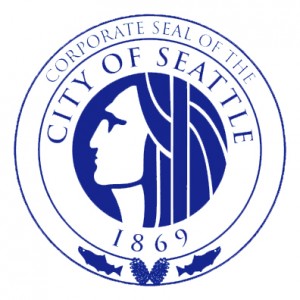Senior Editor
It took several days to happen, but the City of Seattle finally paid off on Dec. 26 with a $38,000 settlement check to the Second Amendment Foundation, ending a legal dispute over the city’s failure to adequately provide hundreds of documents under the Public Records Act.
The documents were related to the January 2013 controversial gun buyback mounted by outgoing Mayor Mike McGinn. It was his response to the December 2012 Sandy Hook tragedy, despite the fact that Ralph Fascitelli, president of Washington CeaseFire, advised the mayor via e-mail that such enterprises were questionable at best, and sometimes even backfired.
It was the discovery of that e-mail, revealed in a story appearing on the Seattle P-I.com website, that tipped SAF to the fact that the mayor’s office had not provided all documents related to the buyback when it released hundreds of e-mails and some other communications last spring.
When SAF Special Projects Director Philip Watson spotted that and knew he had not previously seen the Fascitelli e-mail, he quickly discussed the situation with Executive Vice President Alan Gottlieb and attorney Miko Tempski with the Tempski Law Firm of Bellevue. He has handled other legal work for SAF and a lawsuit quickly followed.
Tempski actually took delivery of the settlement check, just a few days before McGinn leaves office.
Revelation by SAF on the day the settlement was signed brought cheers from the gun rights community. The McGinn administration was especially anti-gun almost from the moment the liberal former Sierra Club activist took office. His administration pursued a disastrous attempt to erode Washington’s model state preemption gun law, resulting in a victory for SAF, the National Rifle Association, Citizens Committee for the Right to Keep and Bear Arms, Washington Arms Collectors and five individual citizens.
That victory was upheld unanimously by the State Court of Appeals, and when Seattle sought review by the State Supreme Court, the city was turned down.
McGinn also pushed for a change in concealed carry so that police would have broad discretion in issuing concealed pistol licenses. But that effort failed too.
In mid-2013, when McGinn was running for re-election, he launched a “gun free zone” effort with about 100 local business establishments, convincing them to post their premises off limits to firearms. Some of those businesses were off-limits, anyway, and is effort was largely seen as a publicity stunt to gin up his far left anti-gun base for the election.
The McGinn staff failure to provide all buyback-related documents was not viewed as an oversight. The same request had been made to the office of King County Executive Dow Constantine, whose staff quickly responded with all requested e-mails and documents.
Earlier in the year, Seattle Police had to pay $20,000 to the Seattle Times for withholding documents. At the time of the settlement, Gottlieb and Tempski both suggested that a lawsuit would never have been necessary, had the city acted promptly.
“It seemed like Seattle thought they were above it all,” Tempski said after receiving the check.
Watson said the “real losers” were the people of Seattle.
McGinn has not exactly been a champion of completely open government. Recall earlier this year when the Seattle Times revealed the bike-riding mayor and former environmental activist to have sat on a report about coal trains for more than a month. It took a public records request from the newspaper to get McGinn to disclose the contents of the report, which Lauri Hennessey, spokeswoman for the Alliance for Northwest Jobs & Exports, said he was “clearly not eager to release…”
“He asked for this report,” she told the newspaper at the time. “He didn’t like what this report said, so he just put it away.”
The New York transplant, who has been in the Northwest for a couple of decades, became known as “Mayor McSchwinn” for his bicycle advocacy. That he was vocally anti-gun and supported such notions as eroding the state’s model pre-emption act did not earn him any friends in the firearms community.
McGinn’s gun buyback, which even Washington Ceasefire’s Ralph Fascitelli advised against, was not the mayor’s only political misstep. He forced a public vote on the underground tunnel in 2011 and suffered politically for it. This was after he had vetoed the city council’s plan to move forward on the tunnel project months earlier.
Tempski put it best when he observed, “We appreciate that this $38,000 will go to fight for gun rights rather than another unused bike lane.”




